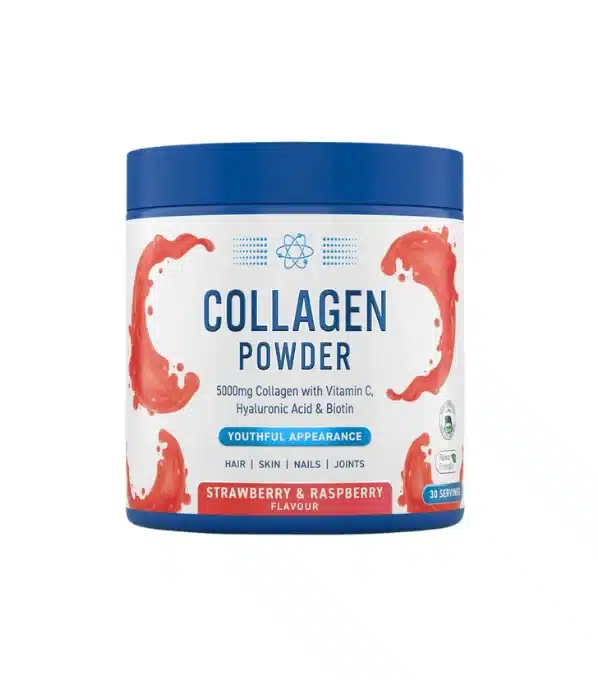Whey protein, a byproduct of cheese production, has gained widespread recognition in the health and fitness industry. Derived from milk, it is an excellent source of high-quality protein that is rich in essential amino acids.
While its primary use has been associated with muscle growth and recovery, emerging research highlights its potential benefits for skin health. This article delves into how whey protein can be a boon for your skin, offering a radiant and youthful appearance.
Whey Protein’s Nutritional Profile
Whey protein is not just a powerhouse of amino acids but also a treasure trove of various nutrients. It contains immunoglobulins, lactoferrin, and bioactive peptides that contribute to its multifaceted health benefits.
The presence of branched-chain amino acids (BCAAs) like leucine, isoleucine, and valine plays a crucial role in skin repair and regeneration. Moreover, it is low in lactose, making it suitable for those who are lactose intolerant. The rich nutritional profile of whey protein provides a solid foundation for its benefits on the skin.
Below is a table summarizing the key nutrients found in whey protein:
| Nutrient | Function |
| Amino Acids (Leucine, Isoleucine, Valine) | Supports skin repair and regeneration |
| Immunoglobulins | Boosts immune function |
| Lactoferrin | Provides antimicrobial properties |
| Bioactive Peptides | Enhances skin hydration and elasticity |
| Low Lactose | Suitable for lactose-intolerant individuals |
These nutrients collectively contribute to the skin health benefits of whey protein, making it an excellent addition to both dietary and skincare routines.
Transform your health inside and out with our Premium Collagen Powder, designed to rejuvenate your skin!

Skin Health Benefits of Whey Protein
The consumption of whey protein can lead to improved skin health in several profound ways.
Regenerates Skin
Firstly, its high amino acid content supports the body’s natural repair processes, helping to heal wounds and regenerate skin tissues more efficiently. Amino acids are the building blocks of proteins, and they play a crucial role in cell turnover and repair. When the skin undergoes any form of damage, whether from a cut, burn, or even acne, amino acids help speed up the healing process, ensuring that the skin recovers quickly and effectively.
Maintain Skin’s Elasticity
Secondly, whey protein helps in maintaining the skin’s elasticity and firmness, reducing the appearance of fine lines and wrinkles. As we age, the skin’s natural production of collagen and elastin diminishes, leading to sagging and wrinkling. The amino acids in whey protein, particularly leucine, stimulate the synthesis of these vital proteins, keeping the skin firm and supple. This can significantly delay the signs of aging, helping you maintain a youthful appearance for longer.
Hydrates Skin
Additionally, whey protein aids in hydrating the skin, thus preventing dryness and promoting a healthy, glowing complexion. Hydrated skin is not only more resilient but also looks more vibrant and youthful. Whey protein contains components that enhance the skin’s moisture-retaining capabilities, ensuring that it stays hydrated even in harsh environmental conditions. This hydration also helps in reducing the occurrence of flaky and rough patches, giving the skin a smoother texture.
These benefits make whey protein an invaluable addition to your skincare regimen. Whether you consume it through dietary supplements or apply it topically via skincare products, the positive effects on your skin can be profound.
Regular incorporation of whey protein can lead to healthier, more resilient skin that not only looks good but also feels good.
Whey Protein and Collagen Production

Collagen, a structural protein in the skin, is essential for maintaining its strength and elasticity. Whey protein plays a pivotal role in boosting collagen production.
The amino acids present in whey protein, particularly glycine and proline, are crucial for collagen synthesis.
- Glycine is the most abundant amino acid in collagen, making up about one-third of its structure, while proline helps stabilize the collagen molecule, enhancing its overall strength and durability.
- Enhanced collagen production leads to firmer, more youthful-looking skin. Collagen provides the framework for our skin, giving it structure and strength.
- By boosting collagen levels, whey protein helps in maintaining the skin’s integrity, preventing sagging and ensuring that it remains tight and lifted.
- This can dramatically improve the overall appearance of the skin, making it look smoother and more toned.
- It also helps in reducing the visibility of scars and stretch marks, contributing to an even skin tone and texture.
Collagen is critical in the wound healing process and the regeneration of new skin tissues. Increased collagen production can help fade scars and stretch marks more quickly by promoting the growth of new, healthy skin cells. This can lead to a more uniform complexion, free from blemishes and imperfections.
Antioxidant Properties of Whey Protein
Whey protein is endowed with significant antioxidant properties, which are vital for skin health. It contains glutathione, a potent antioxidant that protects the skin from oxidative stress and environmental damage. Oxidative stress occurs when there is an imbalance between free radicals and antioxidants in the body, leading to cell damage. Glutathione helps neutralize these free radicals, preventing them from causing harm to the skin cells.
Antioxidants neutralize free radicals, preventing premature aging and reducing the risk of skin conditions such as acne and eczema. Free radicals can accelerate the aging process by damaging collagen and elastin, leading to wrinkles, fine lines, and other signs of aging.
Incorporating Whey Protein into Your Diet for Skin Health

Whey protein’s skin-enhancing benefits are best realized when it is consistently integrated into a balanced diet. One of the most effective and enjoyable ways to do this is through whey protein milkshakes, which not only offer convenience but also taste and versatility.
Whey Protein Milkshakes
Adding whey protein milkshakes to your daily routine can support skin hydration, elasticity, and regeneration. These shakes can be customized with skin-loving ingredients like berries (rich in antioxidants), bananas (high in potassium), or avocados (loaded with healthy fats).
For ideas, check out our detailed guide on whey protein milkshake recipes that are both nutritious and delicious.
Integration with Other Nutrients
For optimal results, pair whey protein with nutrients like vitamin C (supports collagen production), zinc (aids in wound healing), and omega-3 fatty acids (combat inflammation). This synergy amplifies the skin benefits, making your dietary routine both wholesome and targeted.
Potential Considerations and Side Effects
While whey protein is generally well-tolerated, it’s important to be aware of a few potential concerns, especially when using it specifically for skin health.
Acne Concerns
Some individuals may experience acne flare-ups due to dairy-derived hormones or insulin spikes associated with whey protein. If you’re acne-prone, consider switching to an isolate or hydrolyzed whey protein, or explore plant-based alternatives.
Lactose Intolerance
Though most whey protein powders are low in lactose, those with severe intolerance may still experience digestive discomfort. In such cases, lactose-free or isolate formulas are ideal.
You can explore more in our guide on how to choose dairy-free isolate protein powder.
Comparing Whey Protein with Other Protein Supplements for Skin Health
Whey protein is often considered superior for skin regeneration due to its complete amino acid profile, but it’s not the only option.
Casein Protein
While slower-digesting than whey, casein protein provides a sustained amino acid release, which may support overnight skin repair. Learn more about casein protein benefits.
Plant-Based Alternatives
Brown rice, pea, and soy protein are excellent for those with dairy sensitivities. Though often lower in certain amino acids, they still contribute to skin health—especially when blended. Read about brown rice protein benefits and various protein supplement types to choose what’s best for your skin and dietary preferences.
Whey Protein in Skin Care Products
The skincare industry has started recognizing the potential of whey protein, leading to its inclusion in various skincare products. Whey protein-infused creams, lotions, and masks are becoming increasingly popular due to their ability to nourish and rejuvenate the skin. These products leverage the protein’s hydrating and reparative properties, offering a comprehensive solution for various skin concerns. The topical application of whey protein can complement its dietary intake, providing a dual approach to achieving radiant and healthy skin.
Several notable brands have embraced whey protein in their formulations.
- For instance, Dr. Jart+ offers a line of products that include whey protein for its anti-aging benefits, helping to maintain skin’s firmness and elasticity.
- Lush Cosmetics incorporates whey protein in some of its masks, which are designed to hydrate and rejuvenate the skin, leaving it soft and glowing. Another brand, Glytone, uses whey protein in its hydrating creams, providing intense moisture and improving the skin’s overall texture.
- These products have been well-received in the market, thanks to their effectiveness in addressing a range of skin issues.
From reducing the appearance of fine lines and wrinkles to enhancing skin hydration and elasticity, whey protein-infused products offer a multifaceted approach to skincare.
Conclusion
In conclusion, whey protein is not just a supplement for fitness enthusiasts but a versatile ingredient with remarkable skin health benefits. Its rich nutritional profile, ability to boost collagen production, and antioxidant properties make it an invaluable asset for achieving and maintaining healthy, youthful skin.
Whether consumed through diet or applied topically, whey protein can significantly enhance your skincare routine, offering a natural and effective way to achieve a radiant complexion. Incorporating whey protein into your daily regimen can be a game-changer for your skin, providing a holistic approach to beauty and wellness.










Add comment
You must be logged in to post a comment.